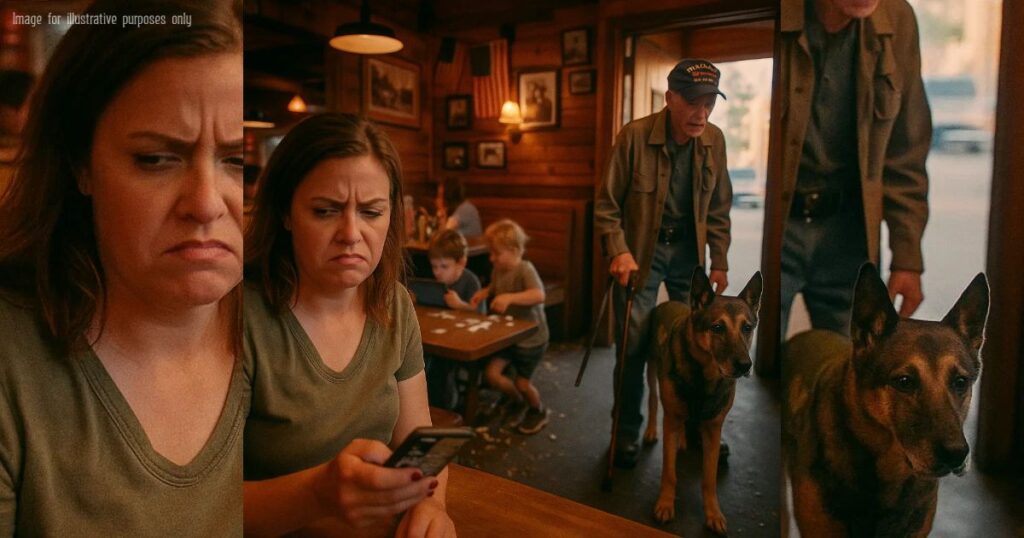“Sarah,” Dad said finally, as if the quiet had been carrying a package we were ready to open, “the woman at the restaurant—do you think she learned anything?”
I thought about her kids, about the moment the boy had stopped and looked, really looked.
I thought about how understanding happens—the way water finds stone and changes it without trying to win an argument.
“Maybe not all at once,” I said.
“But the next time she sees a vest and a patch, I don’t think she will call it disgusting. Maybe she’ll just call it service.”
Dad nodded. “Coming home is the hardest part,” he repeated, softer this time.
Then, after a pause: “But it gets easier when someone meets you at the door.”
When we pulled into our driveway, the motion light came on.
It washed the front step in the kind of glow you see at the end of long hallways in hospitals and airports and places where people carry heavy things.
I took the photograph of Arrow from the shoebox and propped it on the mantle.
Not centered.
Just there.
When the heater kicked on, the frame hummed barely, like an old machine remembering what it was made for.
If you ever find yourself in a place with peanut shells on the floor and flags on the wall, and a dog slips in wearing a vest that looks like it’s been to more countries than you have, don’t ask why he’s there.
Watch.
Watch the way he maps exits without leaving his person.
Watch how he becomes a boundary the world can rest against. Watch how a hand trembles, then doesn’t.
Some soldiers come home to parades.
Some soldiers come home to a leash looped around a wrist. Both carry stories that are heavier than they look. Both deserve a chair that no one tries to pull away.
And if a steak gets cut in half, remember: it isn’t about table manners.
It’s about the oldest ceremony we have—one warrior feeding another, so both can keep walking.
This story is fictionalized for privacy and is not medical or legal advice.


